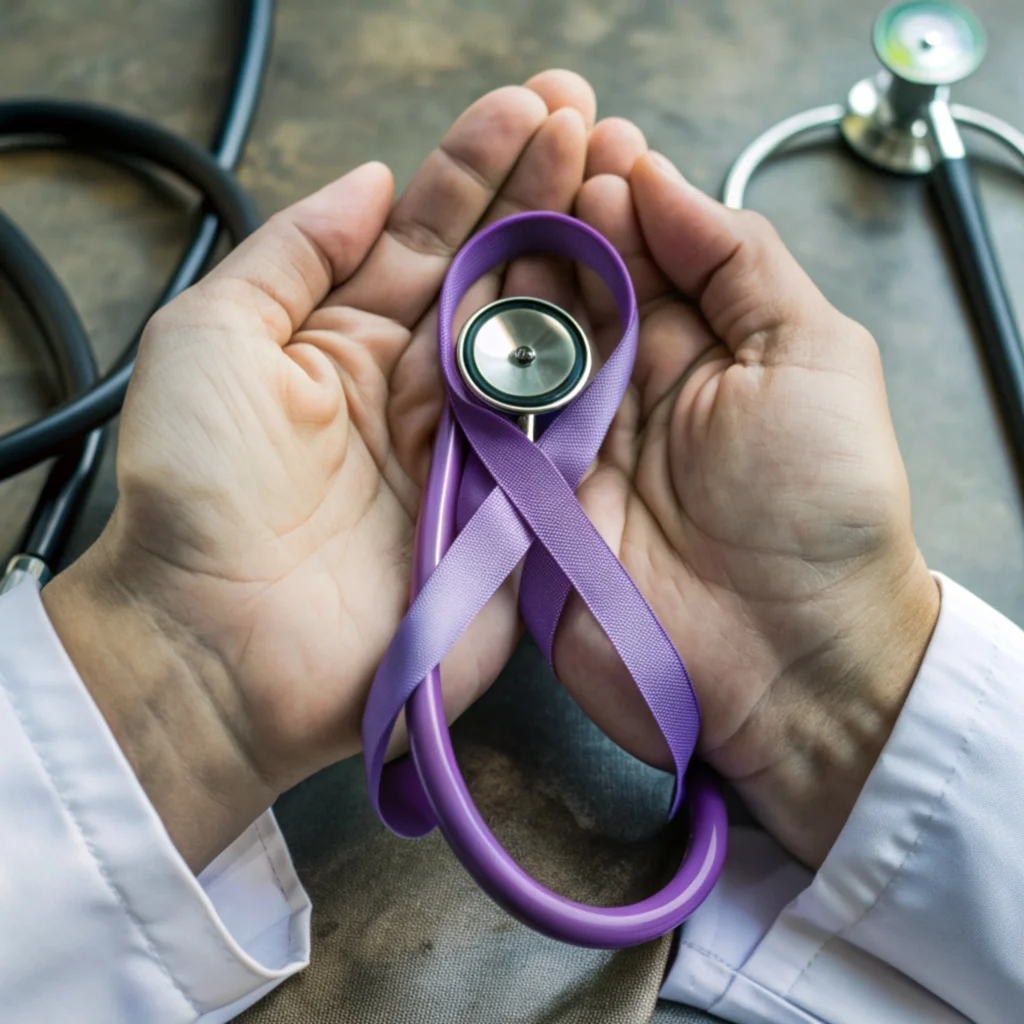Healing in cancer care
Preventions of Cancer
Prevention measures to reduce the risk of cancer include:
Nutrient-Rich Diet: Consume a balanced mix of fruits, veggies, whole grains, and lean proteins for essential nutrients and antioxidants that may prevent cancer.
Active Lifestyle: Regular exercise maintains a healthy weight, reduces cancer risk, and boosts the immune system.
Tobacco-Free Living: Quit smoking, avoid secondhand smoke; tobacco is a major cause of various cancers.
Sun Safety: Use sunscreen, wear protective clothing, and limit sun exposure to prevent skin cancer.
Moderate Drinking: Limit alcohol; excessive intake is linked to increased cancer risk.
Early Detection: Regular screenings and check-ups detect and treat cancers at a manageable stage.

Guard your health
prioritize prevention
over cure
For Cancer.
Life Style Changes
Sun Protection:
Protect your skin from the sun to reduce the risk of skin cancer. Use sunscreen, wear protective clothing, and avoid prolonged sun exposure.
Stay Hydrated:
Drink an adequate amount of water daily to support overall health and well-being.
Limit Exposure to Environmental Toxins:
Be mindful of exposure to environmental pollutants, toxins, and harmful chemicals.
Mental Health Care:
Don’t hesitate to seek professional help if you’re struggling with mental health issues like anxiety or depression.

Quality Sleep:
Prioritize good sleep hygiene. Aim for 7-9 hours of quality sleep each night.
Social Connections:
Cultivate strong social connections and maintain supportive relationships with family and friends.
Limit Alcohol and Avoid Smoking:
If you drink alcohol, do so in moderation. Avoid smoking or using tobacco products to protect your health.
Regular Health Check-ups:
Schedule regular check-ups and screenings to catch potential health issues early and maintain good health.
Risk Factors
Genetics
Inherited genetic mutations can increase susceptibility to certain cancers.
1
Environmental Factors
Exposure to carcinogens like tobacco smoke, pollutants, and UV radiation raises cancer risk.
2
Lifestyle Choices
Poor diet, sedentary lifestyle, and excessive alcohol increase the risk of developing cancer significantly.
3
PROTECTORS OF HEALTH: DEPLOYING STRATEGIES TO PREVENT CANCER WITHIN ONCOLOGY PARAMETERS
- Early Detection
- Genetic Counseling
- Lifestyle Modification
- Vaccination (HPV)
- Occupational Safety
- Radiation Protection
- Chemoprevention
- Clinical Surveillance
- Immunotherapy Advancements
- Targeted Therapies
- Hormone Replacement Awareness
- Environmental Risk Mitigation
- Public Health Education
- Precision Screening
- Palliative Care Integration
- Tobacco Control
- Personalized Medicine
- Survivorship Programs
- Proactive Genetic Testing
- Accessible Oncology Services

Testimonial
What They Say About Us
Read genuine reviews and testimonials from our patients.
Frequently Asked Questions
Breast cancer prevention focuses on lifestyle choices and regular screenings. Firstly, maintaining a healthy weight through balanced diet and regular exercise reduces the risk, as excess body fat can increase hormone levels linked to cancer. Secondly, limiting alcohol intake, as alcohol can raise estrogen levels and contribute to cancer risk. Thirdly, avoiding smoking and secondhand smoke, which can be detrimental to overall health and increase cancer risks. Fourthly, breastfeeding may lower the risk by reducing exposure to estrogen, which can promote breast cell growth.
Slowing the growth of breast cancer typically involves a combination of treatment strategies tailored to the individual’s specific cancer type and stage. These may include surgical interventions like lumpectomy or mastectomy, radiation therapy to target remaining cancer cells after surgery, and systemic treatments such as chemotherapy, hormone therapy, targeted therapy, or immunotherapy. Lifestyle changes like maintaining a healthy weight, regular exercise, and a balanced diet can also support treatment effectiveness and overall health.
The lifestyle factors that are typically recommended for reducing the risk of breast cancer or supporting recovery from it include a balanced diet rich in fruits, vegetables, whole grains, and lean proteins. Regular physical activity, such as brisk walking or aerobic exercises, is crucial, aiming for at least 150 minutes per week. Maintaining a healthy weight, avoiding smoking and excessive alcohol consumption, and managing stress effectively are also important. Regular screenings and early detection can significantly improve outcomes, so it’s essential for women to adhere to recommended screening guidelines.
